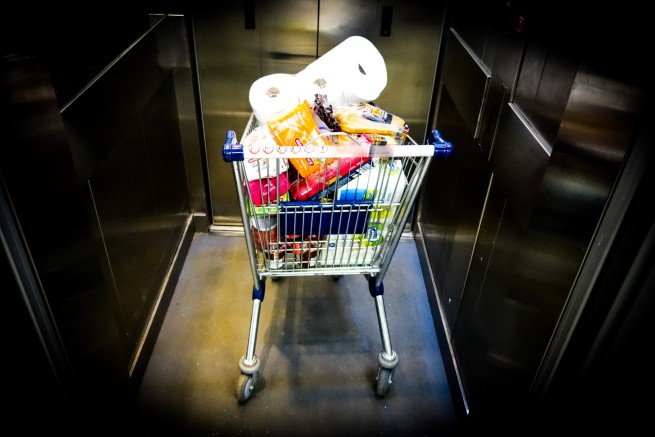Households have faced many shocks in recent years and have adjusted their purchasing behavior accordingly.
The inflation crisis of the past two years was triggered by a combination of factors, including supply problems caused by the pandemic and rising energy prices following Russia’s invasion of Ukraine.
Rapidly rising prices have influenced consumer behavior and increased their spending. In general, citizens use different strategies to cope with rising prices: adjusting consumption, cutting expenses or increasing their income. The European Central Bank’s Consumer Expectations Survey (CES) provides a picture of the changes that have taken place.
CES attendees were asked what actions have they taken in the last 12 months to combat inflation?. In addition to reducing consumption, they “reached into the money box” (using deferred savings, 43%), increased work hours, performed additional functions, or demanded a salary increase (31%).

About 50% of respondents say that they now visit different stores to compare prices and only then make a purchase. 33% now choose lower quality products and 28% have reduced their purchases.
Saving
35% reported that they had “got into the deep end” to “survive”, significantly reducing their savings. In terms of income, about 15% said they were negotiating for a pay rise, and 17% said they were working longer hours or taking on additional jobs. Households facing budget constraints (defined as those with a high proportion of spending on necessities relative to their income) were more likely to adjust their purchasing and saving patterns compared to households with an unconstrained budget.
Change cart
Categories with larger relative price increases have seen larger adjustments in their share of total spending over the past two years, according to the ECB survey. In particular, consumption of goods such as food and equipment has undergone significant downward adjustments in response to significant price increases.
At the same time, additional items of expenditure also influenced the consumer behavior of households. The expansion of entertainment services such as restaurants, leisure and travel has occurred as a result of changing preferences since the lifting of pandemic social restrictions. As a result, the share of these categories in total spending increased from 7.4% in 2021 to 12.9% in 2023.
In addition, the share of transport (including vehicle purchases) began to decline in early 2022 due to semiconductor supply constraints, but recovered to some extent in 2023.
Income
CES data shows that a majority of consumers (54%) said their incomes grew slower than prices soared, 21% said their incomes rose faster than inflation, and 25% said their incomes fell.







More Stories
Fruits and vegetables: imports up 50.2% in April
Greek products on their way to France
Reduced fees for POS transactions, limited bank fees